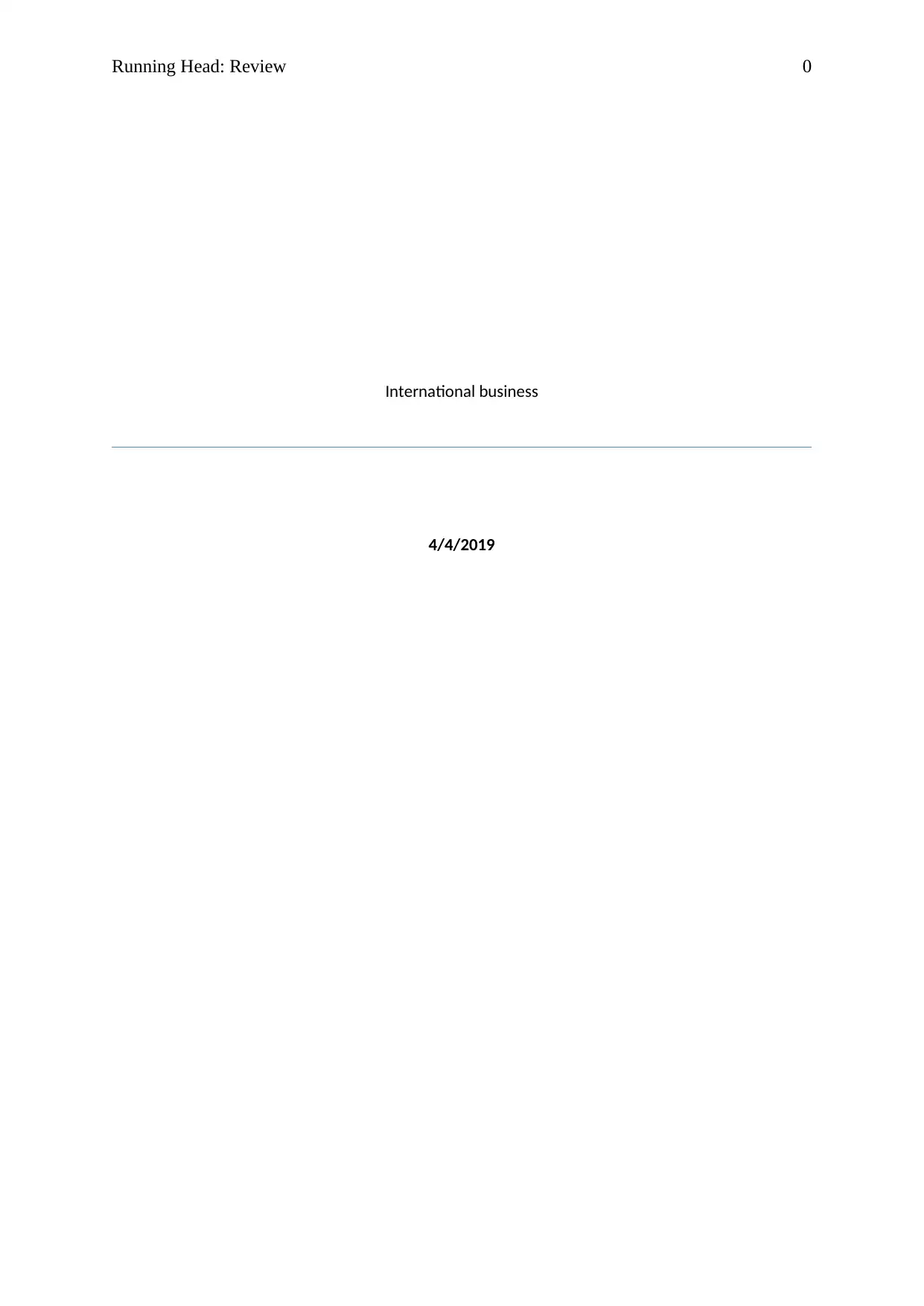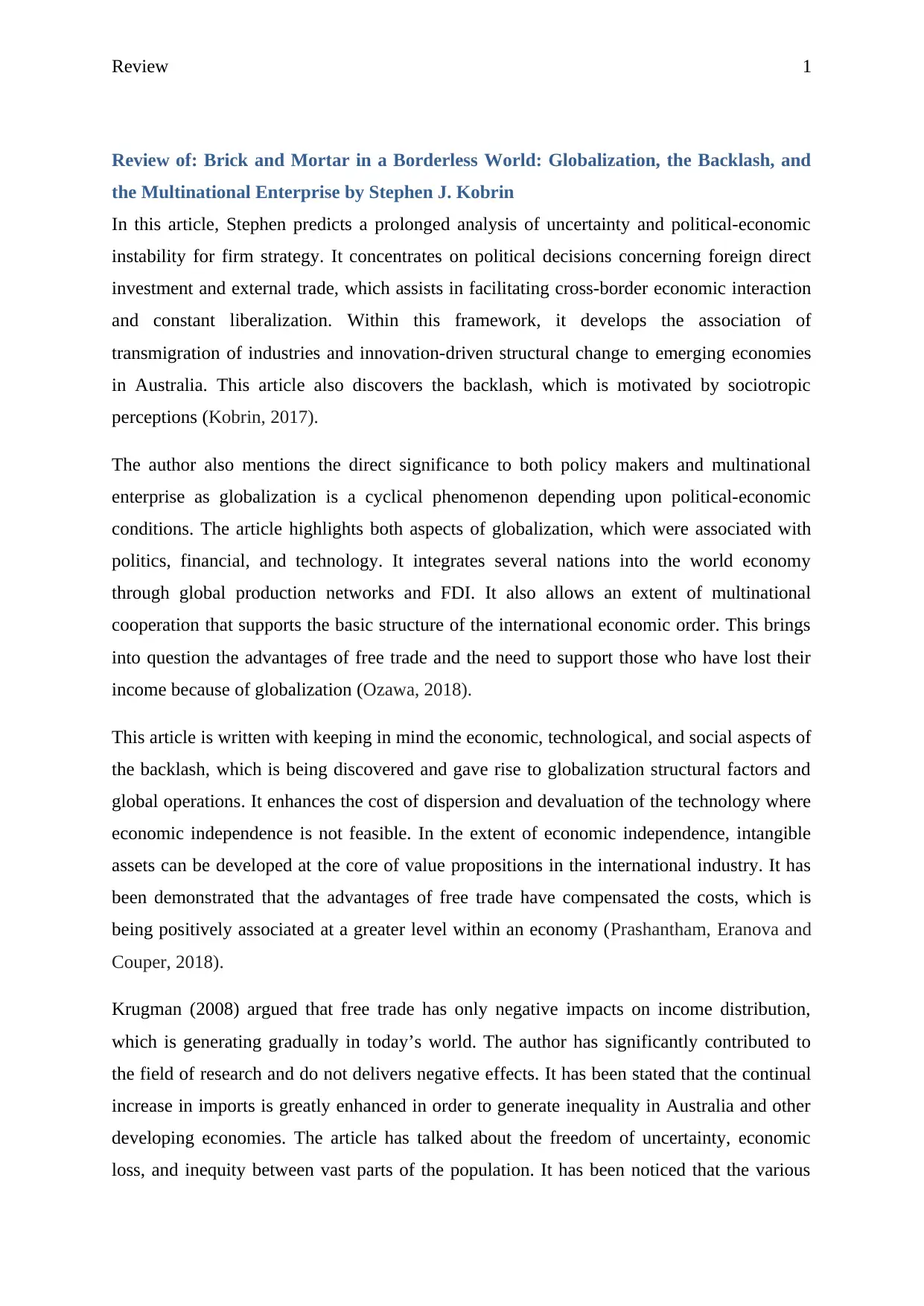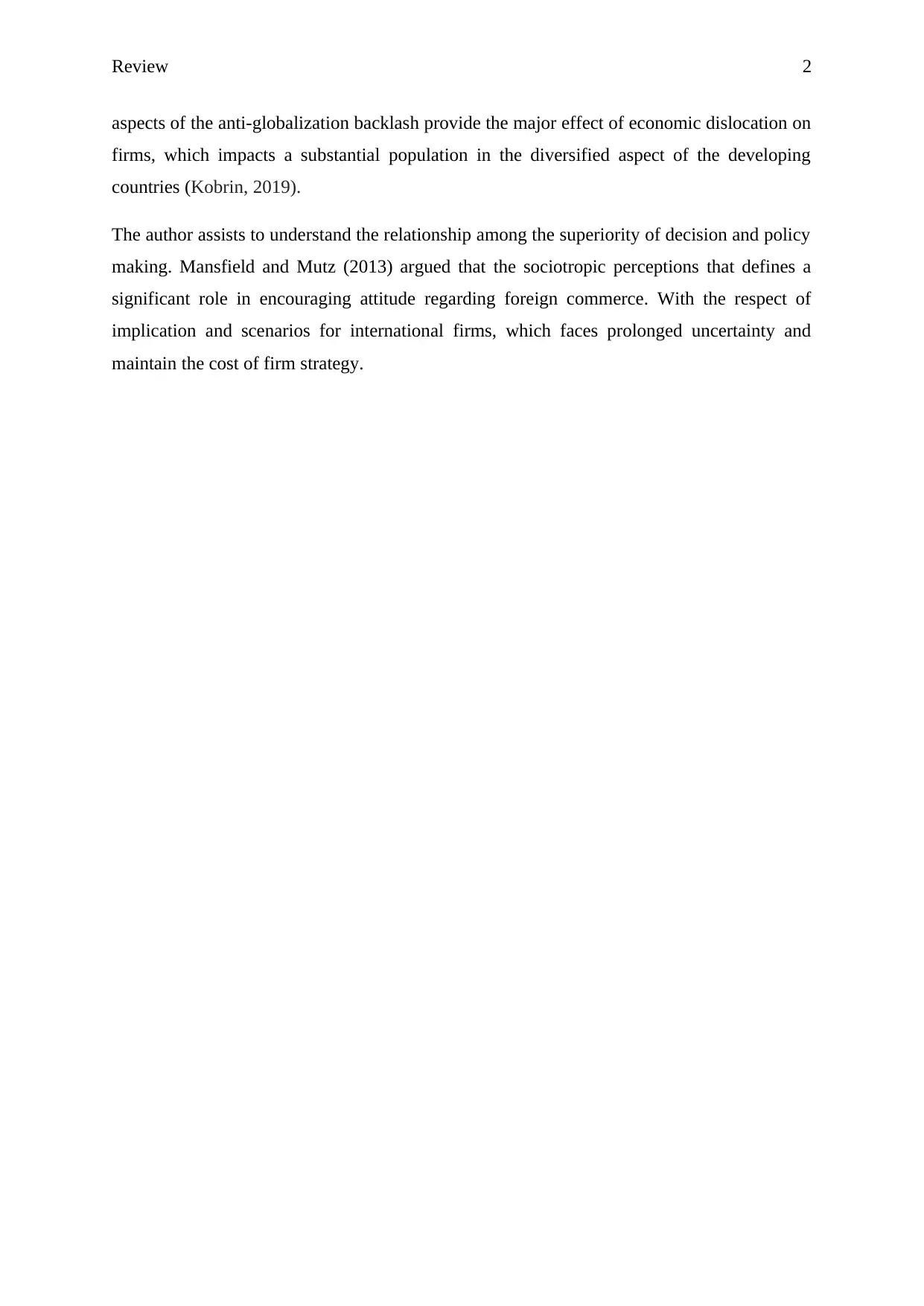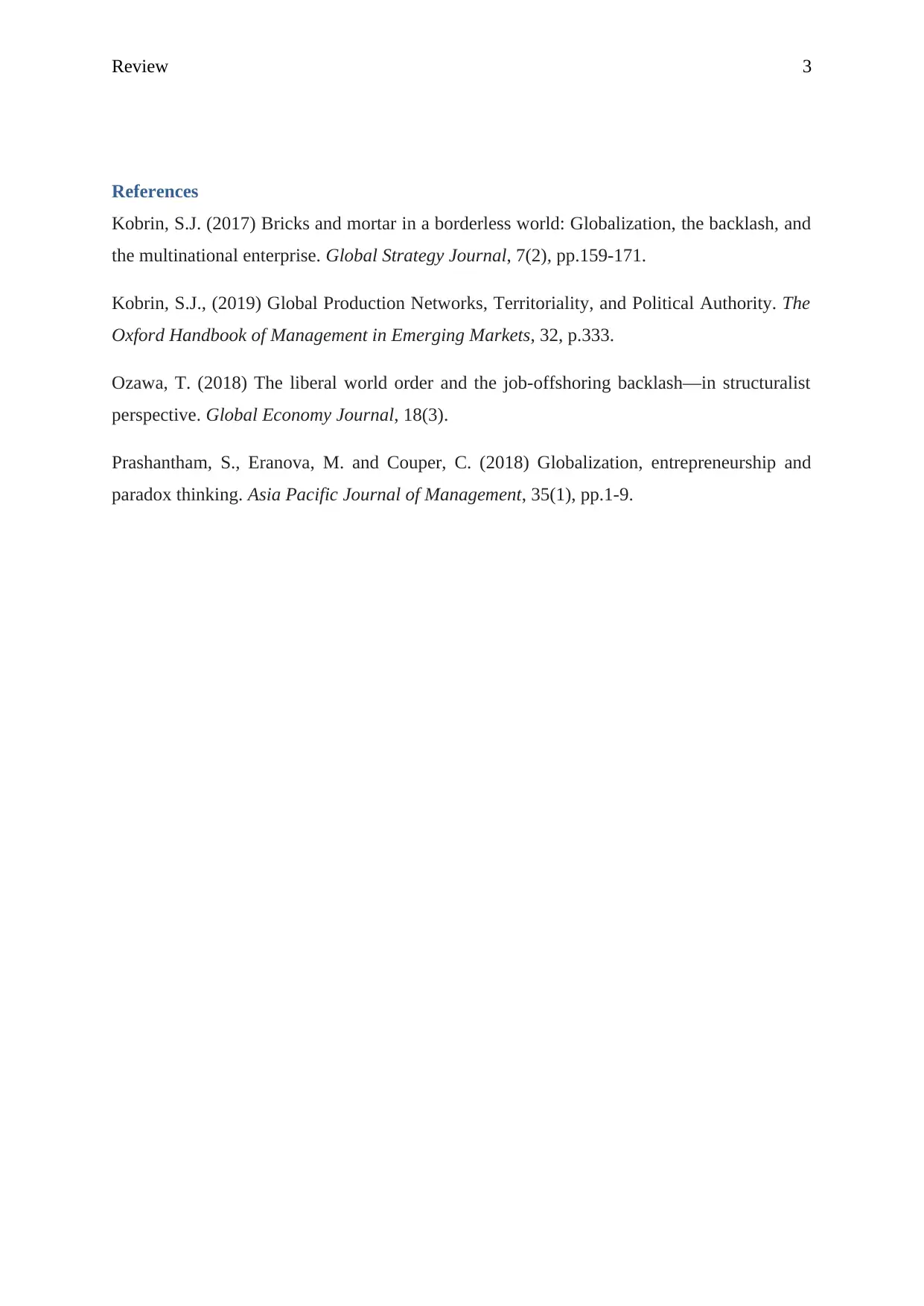Review of 'Bricks and Mortar in a Borderless World' by Stephen Kobrin
VerifiedAdded on 2023/01/16
|4
|661
|76
Report
AI Summary
This report offers a critical review of Stephen Kobrin's article, "Bricks and Mortar in a Borderless World: Globalization, the Backlash, and the Multinational Enterprise." The review examines Kobrin's predictions of political-economic instability for firm strategy, focusing on foreign direct investment, external trade, and the transmigration of industries. It explores the backlash driven by sociotropic perceptions and the cyclical nature of globalization influenced by political-economic conditions. The analysis highlights the integration of nations through global production networks, the advantages of free trade, and the economic, technological, and social aspects of the backlash. The report discusses the significance of economic independence, intangible assets, and the impact of globalization on income distribution and inequality, drawing on the research of Krugman and others. It concludes by emphasizing the prolonged uncertainty faced by multinational corporations and the implications for their strategies.
1 out of 4











![[object Object]](/_next/static/media/star-bottom.7253800d.svg)